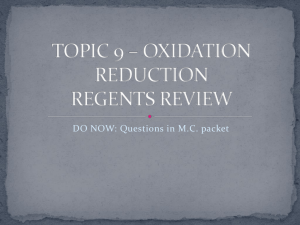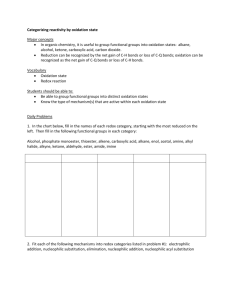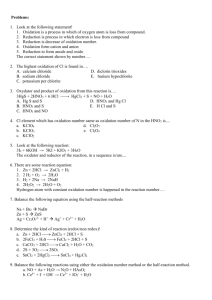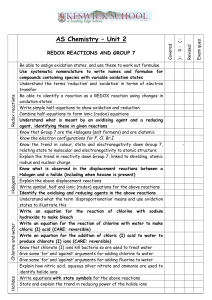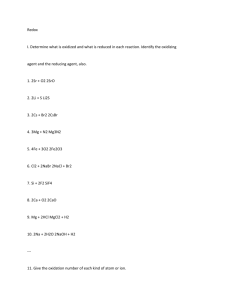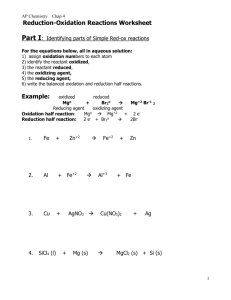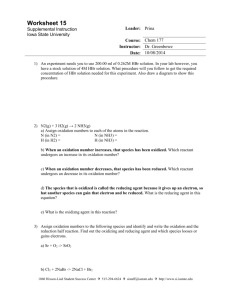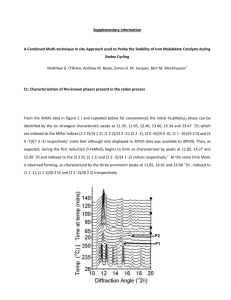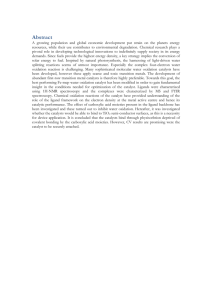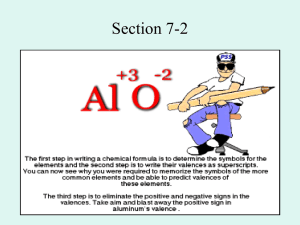Electrochemistry Unit Outline March 2015
advertisement
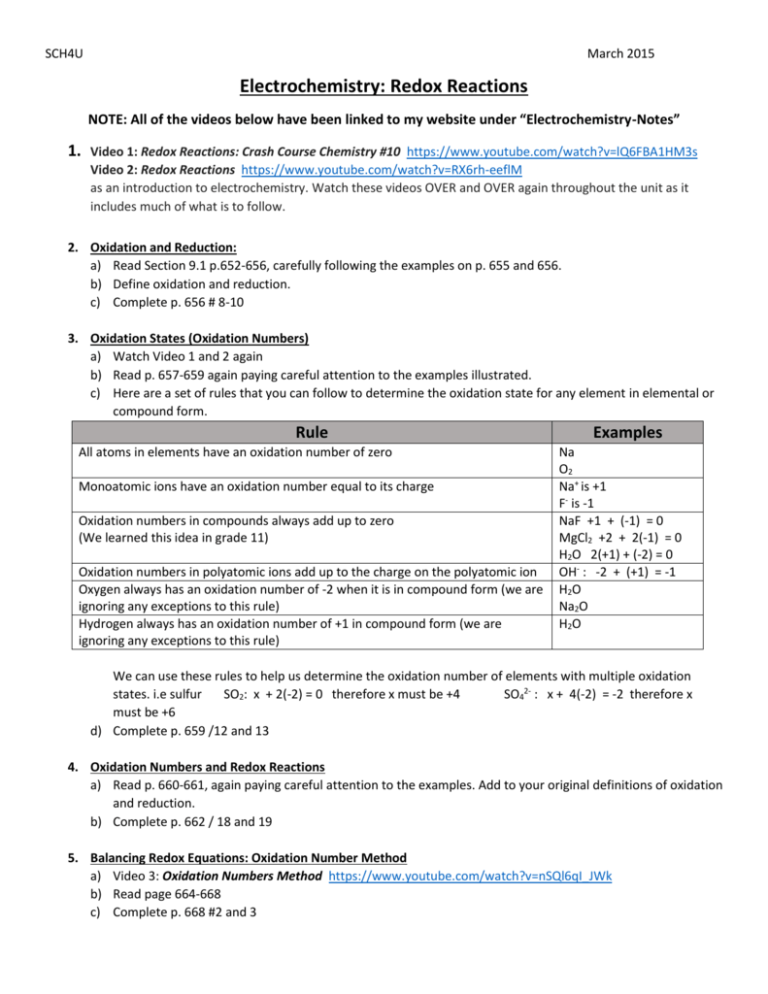
SCH4U March 2015 Electrochemistry: Redox Reactions NOTE: All of the videos below have been linked to my website under “Electrochemistry-Notes” 1. Video 1: Redox Reactions: Crash Course Chemistry #10 https://www.youtube.com/watch?v=lQ6FBA1HM3s Video 2: Redox Reactions https://www.youtube.com/watch?v=RX6rh-eeflM as an introduction to electrochemistry. Watch these videos OVER and OVER again throughout the unit as it includes much of what is to follow. 2. Oxidation and Reduction: a) Read Section 9.1 p.652-656, carefully following the examples on p. 655 and 656. b) Define oxidation and reduction. c) Complete p. 656 # 8-10 3. Oxidation States (Oxidation Numbers) a) Watch Video 1 and 2 again b) Read p. 657-659 again paying careful attention to the examples illustrated. c) Here are a set of rules that you can follow to determine the oxidation state for any element in elemental or compound form. Rule All atoms in elements have an oxidation number of zero Monoatomic ions have an oxidation number equal to its charge Oxidation numbers in compounds always add up to zero (We learned this idea in grade 11) Oxidation numbers in polyatomic ions add up to the charge on the polyatomic ion Oxygen always has an oxidation number of -2 when it is in compound form (we are ignoring any exceptions to this rule) Hydrogen always has an oxidation number of +1 in compound form (we are ignoring any exceptions to this rule) Examples Na O2 Na+ is +1 F- is -1 NaF +1 + (-1) = 0 MgCl2 +2 + 2(-1) = 0 H2O 2(+1) + (-2) = 0 OH- : -2 + (+1) = -1 H2O Na2O H2O We can use these rules to help us determine the oxidation number of elements with multiple oxidation states. i.e sulfur SO2: x + 2(-2) = 0 therefore x must be +4 SO42- : x + 4(-2) = -2 therefore x must be +6 d) Complete p. 659 /12 and 13 4. Oxidation Numbers and Redox Reactions a) Read p. 660-661, again paying careful attention to the examples. Add to your original definitions of oxidation and reduction. b) Complete p. 662 / 18 and 19 5. Balancing Redox Equations: Oxidation Number Method a) Video 3: Oxidation Numbers Method https://www.youtube.com/watch?v=nSQl6qI_JWk b) Read page 664-668 c) Complete p. 668 #2 and 3 6. Balancing Redox Equations: Half Reaction Method a) Video 4: Half Reaction Method https://www.youtube.com/watch?v=j-xcAvrv9ow b) Read p. 668-672 c) Complete p. 673 #6 and 7 7. Electrochemical Cell a) Video 5: Crash Course Chemistry #36 https://www.youtube.com/watch?v=IV4IUsholjg b) Read p. 685-693 c) Complete p. p. 687 #1 and 4 8. Galvanic Cells a) Video 6: Electrochemistry https://www.youtube.com/watch?v=Rt7-VrmZuds b) P. 695-700 c) Complete p. 700 #1,2 3(a,b), 4,5,8 9. Standard Cells and Cell Potential a) Video 7: Finding Ecell for a Reaction https://www.youtube.com/watch?v=DMJIBD7e6wU b) Read p. 701 – 706 Note: Standard Reduction Potentials are in Appendix C9 10. Complete the Redox Reactions assignment
